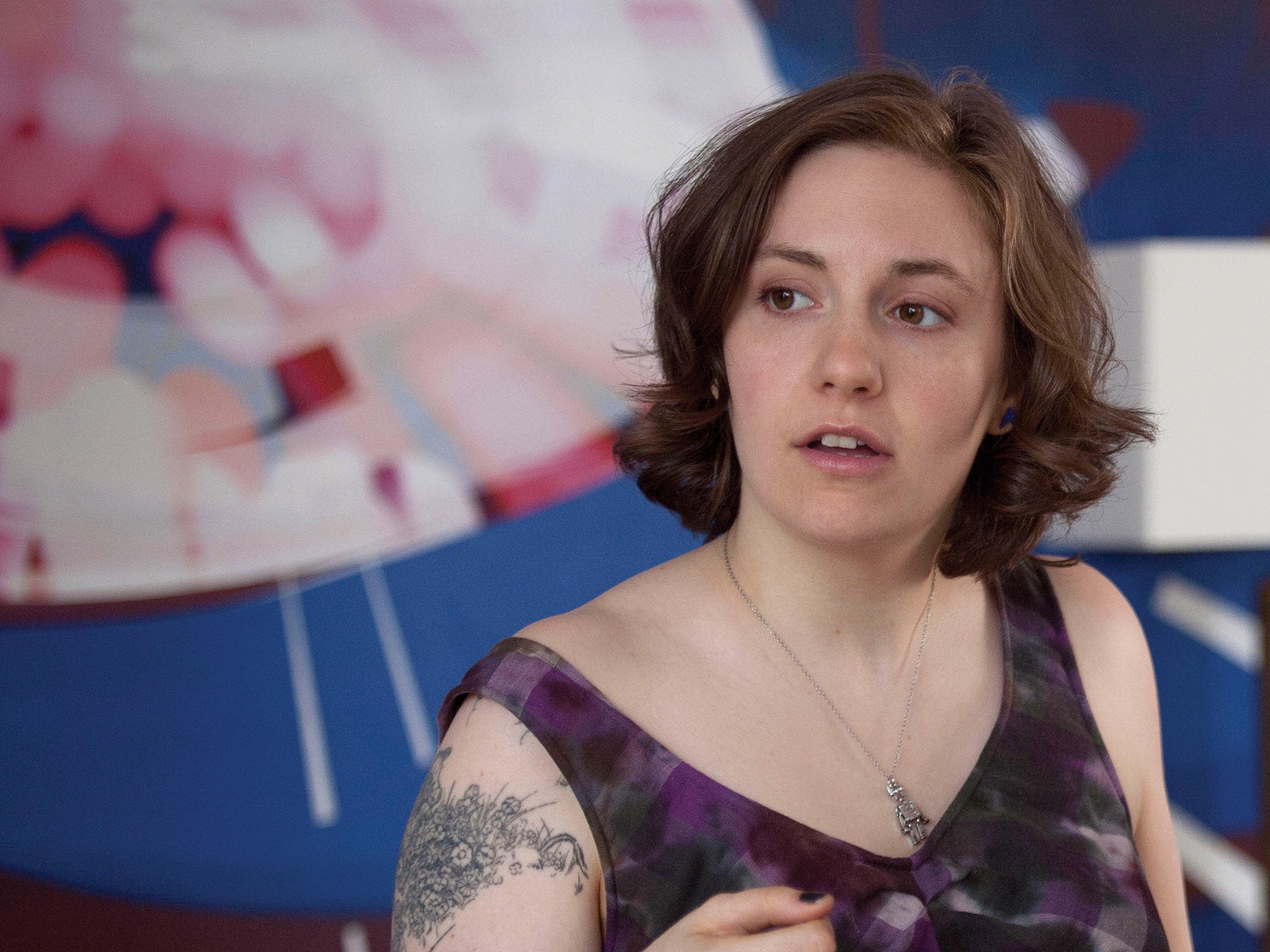Lena Dunham photoshopped: Does feminism preclude women from wanting to look good?
Jezebel £10,000 offer for untouched photos of the New York comic is unsettling

Your support helps us to tell the story
From reproductive rights to climate change to Big Tech, The Independent is on the ground when the story is developing. Whether it's investigating the financials of Elon Musk's pro-Trump PAC or producing our latest documentary, 'The A Word', which shines a light on the American women fighting for reproductive rights, we know how important it is to parse out the facts from the messaging.
At such a critical moment in US history, we need reporters on the ground. Your donation allows us to keep sending journalists to speak to both sides of the story.
The Independent is trusted by Americans across the entire political spectrum. And unlike many other quality news outlets, we choose not to lock Americans out of our reporting and analysis with paywalls. We believe quality journalism should be available to everyone, paid for by those who can afford it.
Your support makes all the difference.“I don’t think women’s breasts should be used to sell things,” I said. “You probably think that because your body isn’t hot enough to sell anything,” came the reply. It’s not, unfortunately, an uncommon response to women who identify as feminists or are expressing a view with room to encroach on another’s misogyny. Feminists can of course have bodies worthy of selling things. They can be skinny, they can be beautiful, models, shop-keepers, mothers, sex-workers, large, short, famous, male even. They can be proud of their bodies but still enjoy, say, a photoshoot with Annie Leibowitz once in a while.
When Jezebel offered £10,000 for the untouched photos of Lena Dunham’s Vogue shoot, it was more than a little unsettling. Paying substantially to obtain images of a woman’s body against her will to then publish and profit from is itself entirely problematic. This was not an exhibition in revealing Vogue’s photoshopping ways - hardly news - but rather a singling out of one woman to make a spectacle for others. And nestled within their chipper plea was a patronising and cynical take on Dunham: “a woman who trumpets body positivity, who’s unabashedly feminist… Her body is real. She is real.” There it was: the man at the party telling you he values your friendship because you’re the real one, the one with her head screwed on, just an average sensible girl, unlike that girl over their, you see her? The fake dumb one he hates to chat to but want’s to bang. It was offensive on all accounts; a narrow-minded view of attractiveness and it’s “characteristics”.
When Dunham identified herself as a feminist, as far as Jezebel were concerned, she had given up her right to identify as anything but real, normal, average. And apparently, not satisfied that she is comfortable with her own body, Jezebel feel she must maintain that responsibility for the rest of us. “Take off the re-touches!” they demanded, “take off the photoshopping, take it off, off-off-off!”
To be body-real has incorrectly, and offensively, become synonymous with looking standard - bland even. And as a correlative there is a common misconception that glamour and illusion are for unaware, insincere puppets. Feminists - the “average” woman - however, are not permitted to enjoy the same fantasy.
It is indisputable that photoshopping women’s bodies for fashion magazines is unhealthy and irresponsible. But editing an artistic photo with careful composition is hardly an infringement on anyone’s ideals.
There is of course a strong new trend for young women to enjoy taking photos of themselves and an abundance of social networks for them to share these images on. Yet these woman are routinely mocked for this, teased in the media, and the subject of blogs solely dedicated to scoffing these selfies. It seems we are unable to celebrate the confidence of these women who are the first to be proud of their bodies. These pictures are of course a form of controlled illusion. These women have considered the light of their bathroom mirror, positioned it so as not to catch a glare on the camera phone, tilted their heads just enough to one side, and placed the lense at an angle to catch the right amount of cleavage, or show the body from it’s most flattering side. They are enjoying the glamour, the fantasy of who you might think they could be. And - as with Dunham's Vogue photoshoot - what their views on womanhood are neither here nor there, and their background are irrelevant - secondary only to enjoying the way they look for a moment. Perhaps they are unabashedly feminist. Their body is real. They are real.
Join our commenting forum
Join thought-provoking conversations, follow other Independent readers and see their replies
Comments